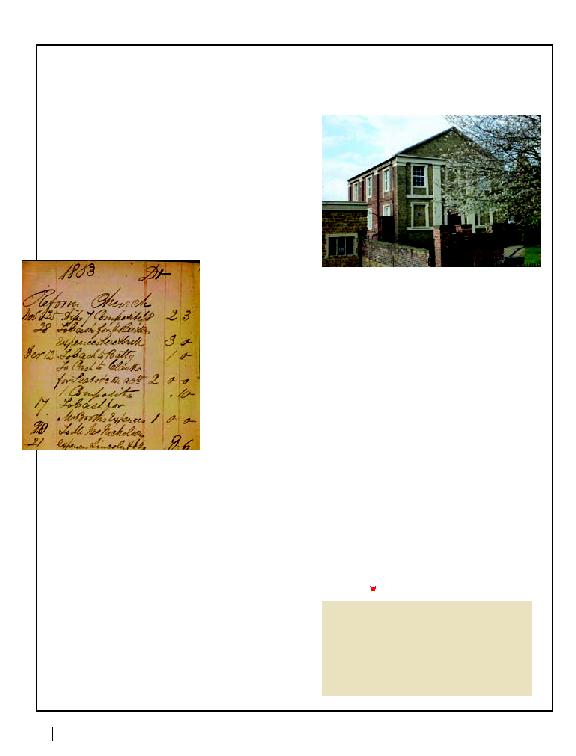
been brought up in a Christian home, and
despite being a Methodist for years, "he was
unsaved." As Booth spoke with him, "he broke
down, came boldly to the penitent form, and
with many tears and prayers he sought and
obtained forgiveness. It was a splendid case and
did us all good."
dated December 17, 1853, in the account book
Reformers reads: "To
cash for Mr. Booth's
expenses �1." Mr.
Batty, the bellman,
was paid 1 shilling
for his services.
week there, Booth
returned in January
and was pleased to
find that only two
of the 36 had fallen
away and returned
tions the Reformers managed to acquire a
redundant congregational chapel in time for
Booth's return. The result was "a glorious
harvest." Booth recorded that 76 were saved
that week.
their services in Caistor a few weeks before
Booth's first visit, but had grown significantly.
There were already 35 members when he first
arrived, 80 by Christmas and over 200 by the
end of his third visit in February. One newspa-
per correspondent spoke of them as having
"hewn, partly out of the rough and partly from
other sects, Ranters, Independents and Nothin-
the "`revival meetings' as they are technically
called...the wildest fanaticism is encouraged;
ravings and bawling, and all manner of extrav-
agant doings are permitted."
Booth wrote, "Every night many souls saved...
The parting with this dear people was very
painful. I had never experienced anything
approaching to the success with which God
crowned my labors here." Booth loved Caistor.
He returned in June and again the following
year with his new bride.
"unwearied self-denying labors as an Evange-
list in this town 50 years ago." In Caistor God
showed Booth how to reach the lost beyond the
chapel confines. With all that he achieved in
founding The Salvation Army, soul-saving
would ever remain what he called his "life's
business."
Jesus: Inspiring Stories of Modern-Day Evange-
lism, published by Crest UKTHQ, available on
www.amazon.com in paperback and e-book for
Kindle. His 30 years of active officership in the
United Kingdom included corps leadership,
county evangelist for Lincolnshire, planting a
corps in Market Rasen and writing.
fee for announcing his arrival.